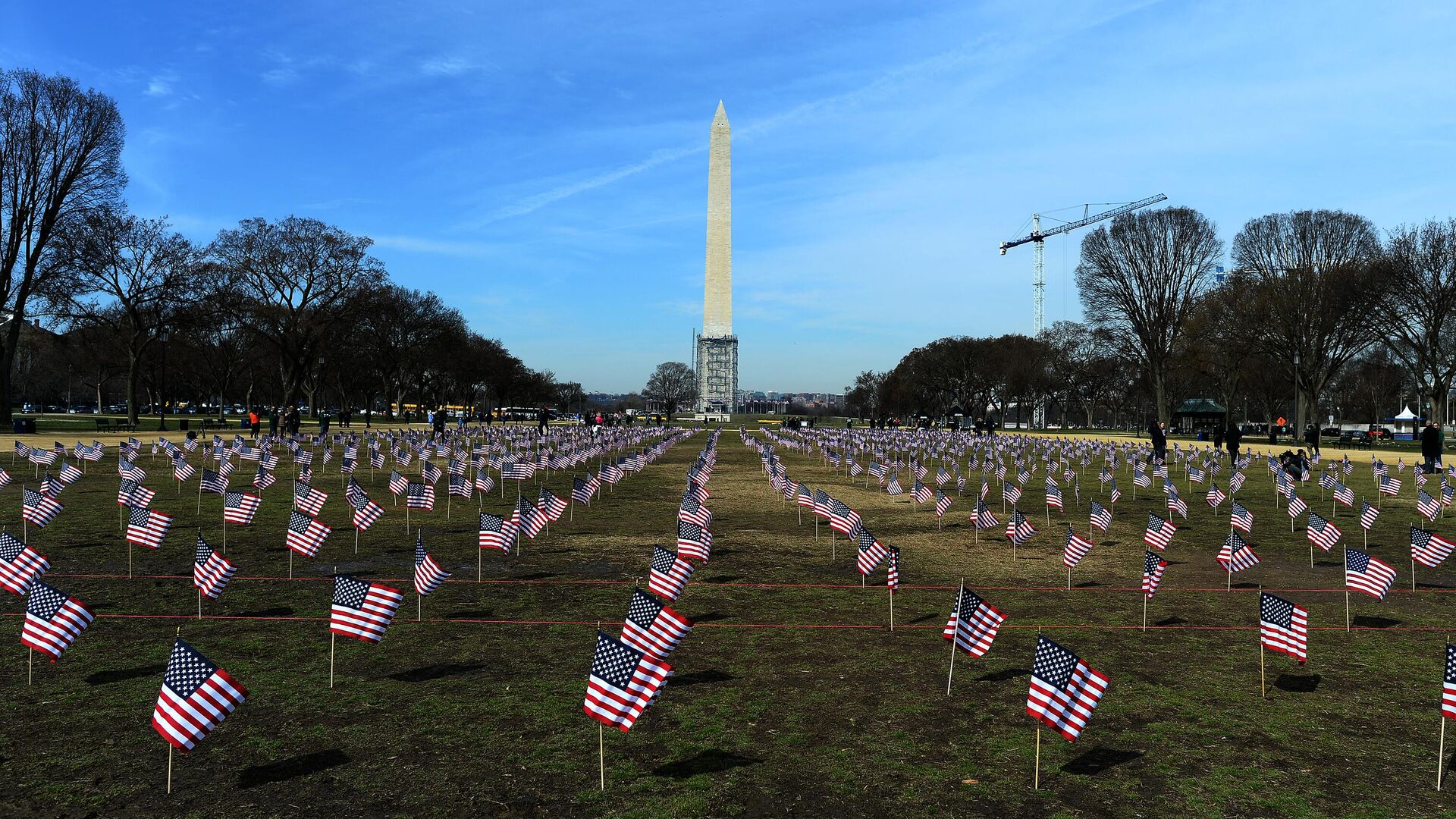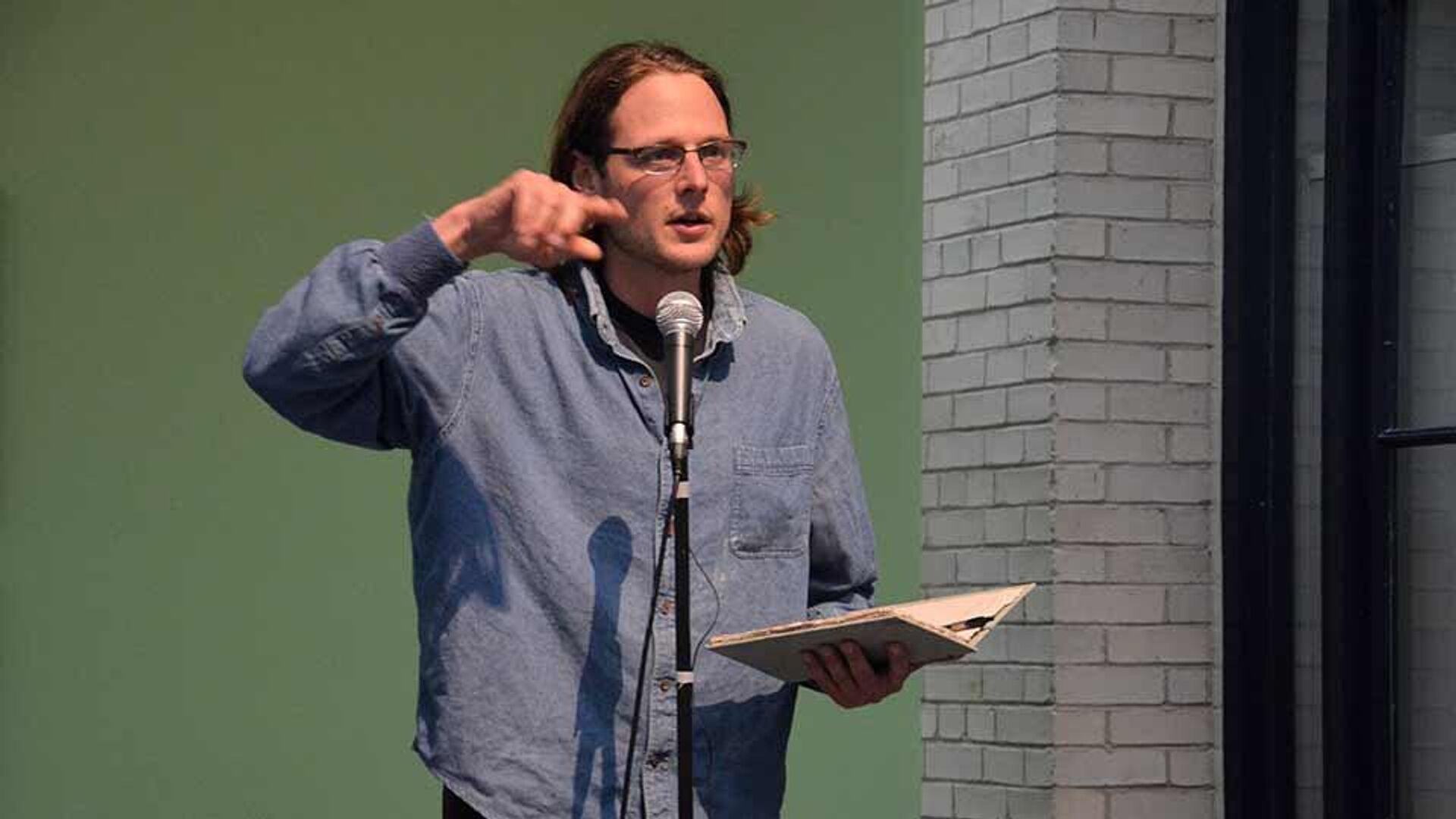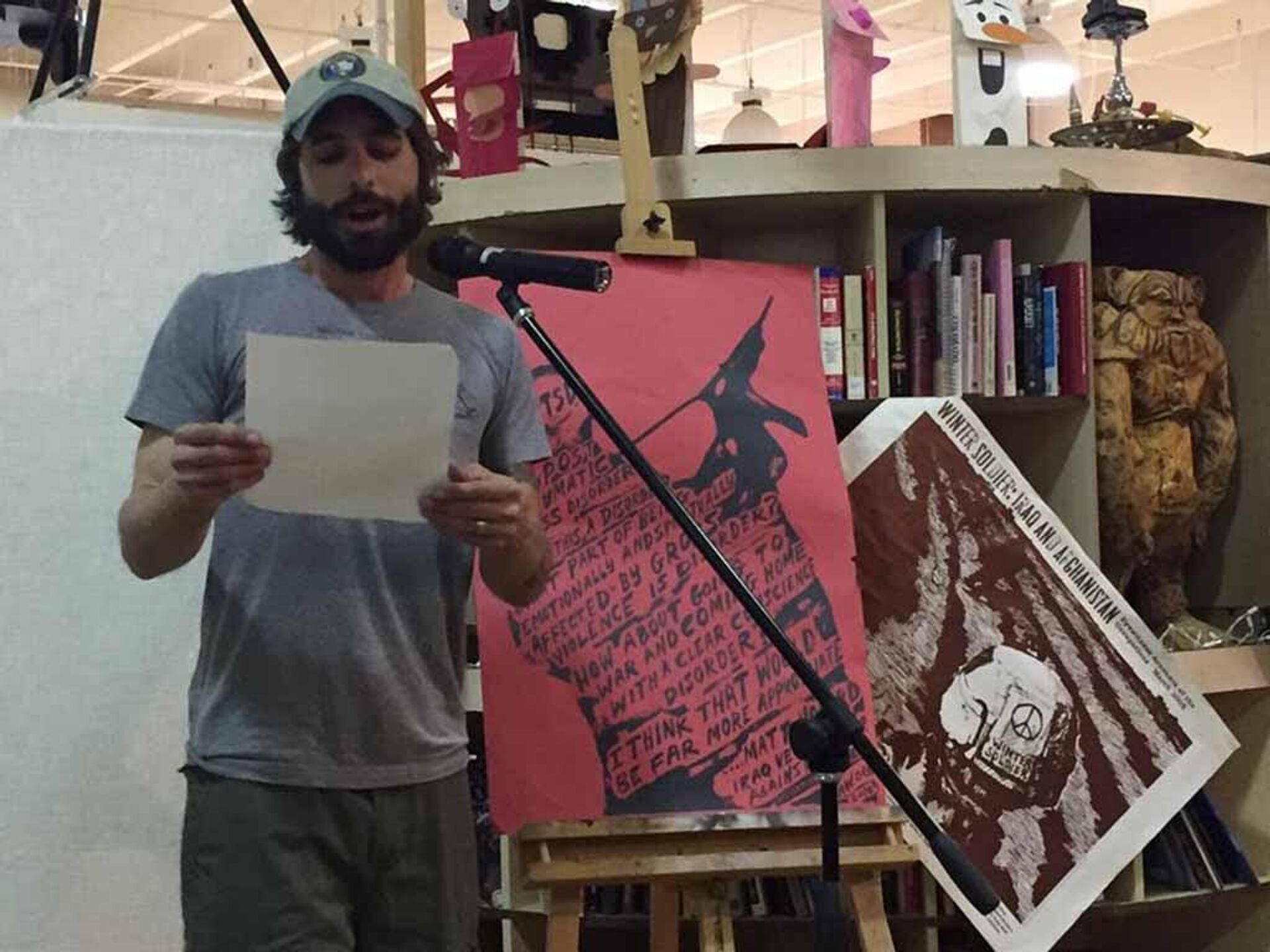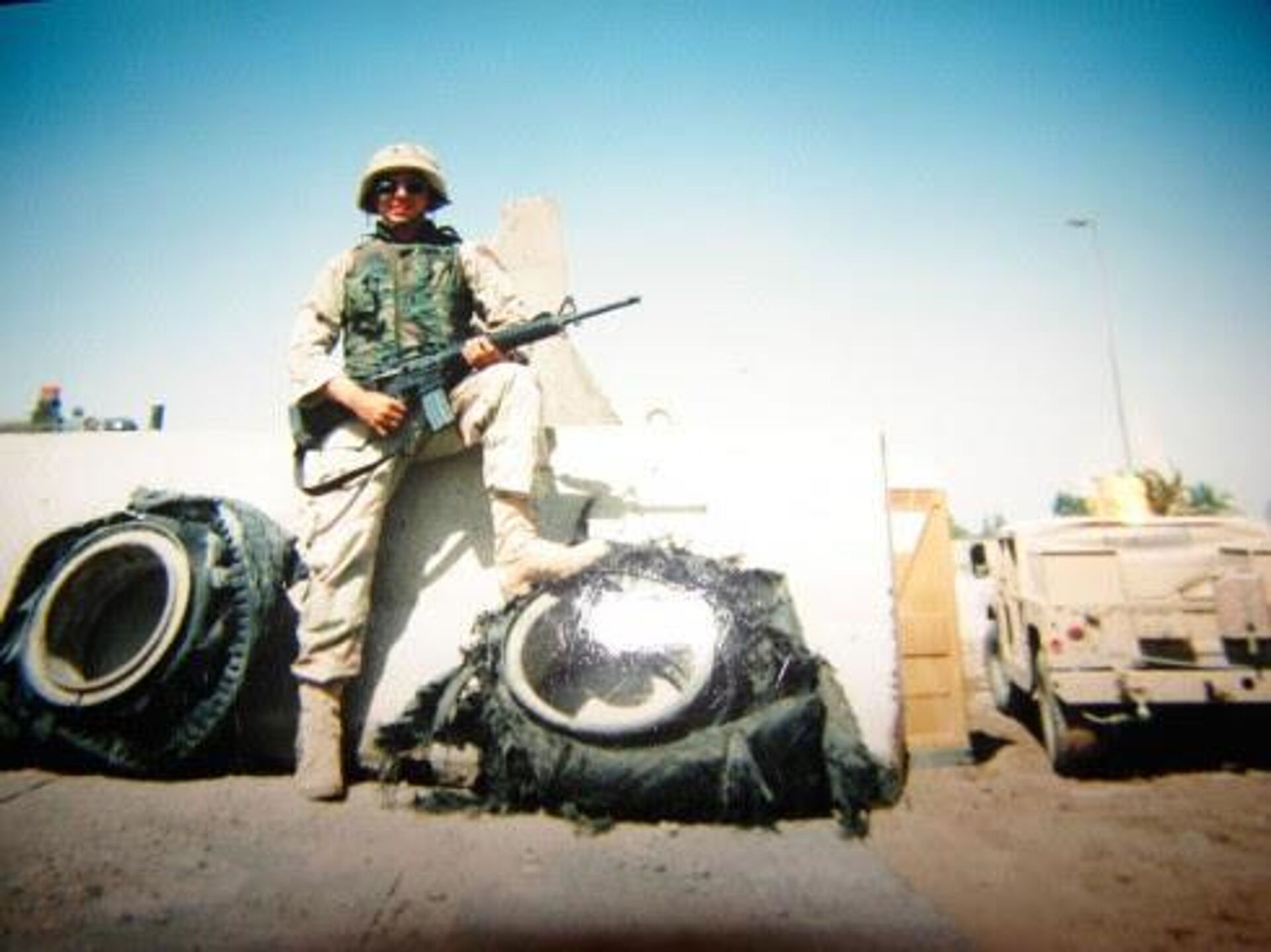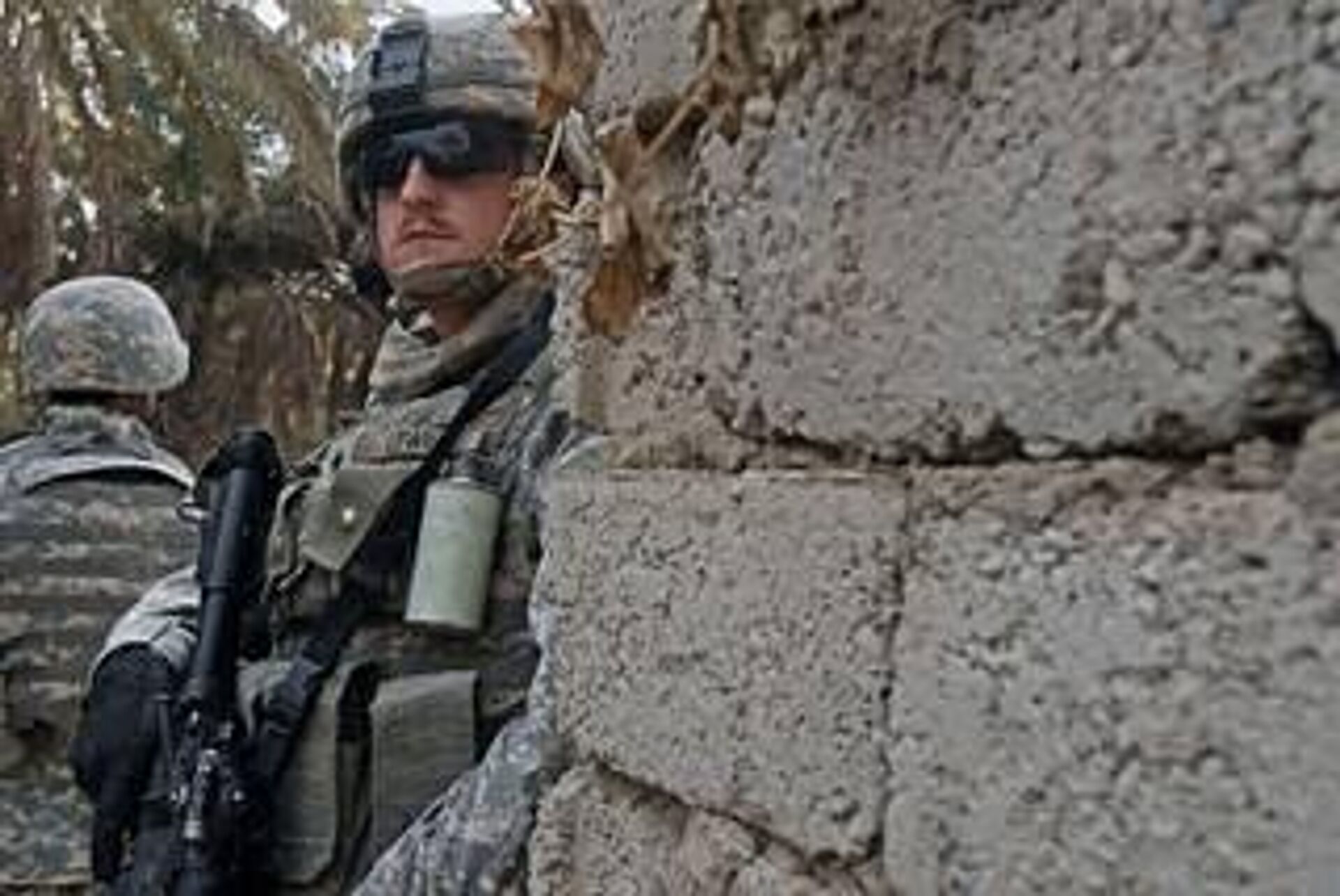https://sputnikglobe.com/20230319/how-the-us-government-abandoned-iraq-war-vets-1108532950.html
How the US Government Abandoned Iraq War Vets
How the US Government Abandoned Iraq War Vets
Sputnik International
Sunday marks the 20th anniversary of the 2003 invasion of Iraq. Sputnik reached out to veterans of the war to get a sense of how it affected them and their comrades, and changed their outlook on US foreign policy.
2023-03-19T11:00+0000
2023-03-19T11:00+0000
2023-03-19T11:29+0000
20 years since us invasion of iraq
iraq
iraq war
2003 invasion of iraq
veterans
army veterans
veterans affairs
suicide
depleted uranium
illness
https://cdn1.img.sputnikglobe.com/img/07e7/03/12/1108532228_0:171:3035:1878_1920x0_80_0_0_650adebcb3f2e2fd2e6aedebb400e50f.jpg
The Iraq War is the second-most expensive war in US history, with its estimated cost of $2-3 trillion making up a big chunk the $8 trillion Brown University's Costs of War project estimates the US has spent on the global "war on terror" which began in 2001 and ended with the US led coalition’s withdrawal from Afghanistan in August 2021.Aside from the financial burden – equivalent to the annual GDP of all but a handful of countries, is the cost in human lives – including over 4,700 US and allied troops killed and nearly 32,000 others wounded. On the Iraqi side the situation is even more grim, with one 2018 estimate citing a death toll of up to 2.4 million – almost a tenth of the country’s prewar population of 27 million. Other estimates put the death toll at between 460,000 and one million – making the Iraq War the deadliest war of the 21st century.Then there are the war’s silent American casualties: suicides caused by the mental health crisis faced by many veterans. According to a 2021 study, over 30,000 vets of the "war on terror" have claimed their own lives by suicide, more than four times the number killed on the battlefield.“Every veteran knows a veteran that they served with or a family member that was a veteran that committed suicide. You can’t find one veteran that doesn’t personally experience this in some way,” says Nate Lewis, a former artilleryman in the Army's 214th Fires Brigade who joined up shortly before the 9/11 terror attacks to earn some money for school, and who was deployed in Iraq after his 20th birthday in 2003.“We don’t really offer space for warriors to really process and heal and move forward,” believes Nick Morgan, an Army Reservist from A Company of the 458th Engineer Battalion who was deployed to Iraq in 2004-2005."When I got back from deployment we just jumped back into civilian life and [were] left to figure it out. All these problems started bubbling up and people that experience extreme cases of trauma and combat have a change in psyche. Your dreams are different, different things seem a lot more threatening. I can't speak to why everybody commits suicide, but I will say that it's because it hurts a lot. There’s not a simple answer to it," the vet turned activist working with the Iraq Veterans Against the War advocacy said."People don't have the resources or personal connections to get the help they needed when they needed it. There’s an overwhelming amount of guilt vets face [from] participating in this war. A lot of us did feel betrayed and duped by the government and by what we were asked to do," Morgan said.One positive development, according to Lewis, is that today there is generally at least a "greater awareness" of the mental health crisis vets are facing. Plus the stigma once associated with these illnesses has been broken down, he noted.Red Pill MomentMorgan joined the Army Reserves straight out of high school in 2002, enticed by the prospects of getting money for college and amid the sense of "patriotism in the air" post-9/11. In Iraq, his engineering unit was responsible for putting up barriers and searching for improvised explosive devices.The veteran said that for him and many of his comrades, the disconnect between what soldiers were told about the war and what they actually saw in the field changed their perspectives and attitudes."It’s this GI Joe delusion [type] of stuff that we see on TV. I didn’t feel heroic. I didn’t feel like things we did made anyone safer or better off. We took care of each other in our jobs. But overall, not necessarily a heroic idea," Morgan said.Lewis, for his part, said he was unsure about the justifications for the war even before his deployment. "I certainly had my doubts about weapons of mass destruction before I went over to Iraq. After going to Iraq and seeing [the situation on the ground] my politics began to really change. There was a poor country affected by a lot of bombing and war already and I didn’t see the people in Iraq as a threat. That was the main thing that kind of switched me to thinking critically and being anti-war. Watching the war change into this occupation going on and on and all the drone strikes and Abu Ghraib it changed me to be against the war," the former soldier said, referring to the infamous prison outside Baghdad where US troops and the CIA were caught engaging in torture and sexual abuse against detainees in a much publicized scandal in 2004."They feel betrayed because [the government] said it was about weapons of mass destruction and it wasn't. They knew that. They said it was to create democracy. That wasn't the case. That didn’t happen. We were very anti-democratic in our practices while we were there as an occupying force," Lewis said, adding that "a lot of veterans became deeply, deeply skeptical to the idea of nation-building and neoconservative ideas of big wars and invasions. A lot of vets I know are disgusted by the whole thing…I think a lot of veterans are deeply disgruntled and would never support something like this again."At the same time, the realization that something was very wrong didn't come overnight for many, Lewis explained, because in the service, "serious political discussion is very taboo.""I remember one conversation that was sobering. I knew that there was a difference between a Sunni and a Shia in terms of their religion and their practices. I didn't know much, but I just knew that those were the two big groups in Iraq. Shockingly, nobody else knew this. The people that were my direct superiors didn't know or understand the difference between Sunni and Shia. I was really worried and dismayed by that because it seemed like an important thing to know only to learn later that not even President Bush knew there was a difference between Sunni and the Shia."Two decades later, the situation in the US remains basically the same, according to the ex-soldier. "Americans didn’t understand anything about Iraq or Iraqis [when the war started]. And they still don't know anything about them at the end of the war, either,” he said.Morgan agrees with that assessment, saying that during his tour, he and his comrades in arms were "very young and not very political," and trusted the government and considered the political aspect of the conflict "higher echelon thinking" that wasn't up to grunts to question. On top of that, "the chain of command is really strict," with troops discouraged from asking questions outside their pay grade. "You don't question orders. You just do it. There are repercussions for questioning them.""This definitely changed for me over time. When we started asking: what was the big picture? What does a victory look like? What does winning or going home look like? There was never any clear answer to that," Morgan said. "We learned fairly quickly after the invasion that there were no weapons of mass destruction, and that was false intelligence. I honestly don’t remember when I learned that. I remember [Bush-era Secretary of State] Colin Powell going on the air saying 'we messed up. Sorry, we lied.' That was really eye-opening. But it still didn’t change what we were doing day to day in Iraq. We had to keep ourselves and our brothers and sisters alive."Echoes of VietnamLewis said that the more he learned about the history of American foreign policy, the more he realized that Iraq wasn’t the first "big disastrous war" in recent memory, as it was preceded by Vietnam."A lot of veterans that welcomed me home were Vietnam veterans. They had this massive antiwar struggle and a lot of victories. The Vietnam veterans were very inspirational to Iraq veterans as they came home. They became our mentors and I learned a lot about transition, transitioning out of the military, and also activism and how to build movements and stay alive," he said.Morgan also saw parallels between the Iraq War and the Vietnam War, but stressed that the challenges faced by Vietnam vets were very different from those faced by those coming home from Iraq or Afghanistan."The way the military was received [at home] is very different than it has been in the wars of decades past. Specifically, I think of Vietnam. We still have relationships with Vietnam veterans and we can talk to them in real time about what this looked like. A lot of them, unfortunately, were conscripted and came home and were called baby killers and things like this. We frankly didn’t see that with the Iraq War," he said, noting that the 'support the troops' sentiment prevalent in the US made vets "strangely popular," at least at the superficial level.Toxic LegacyThere is another thing linking the wars in Iraq and Vietnam – exposure to toxic agents. While US troops and Vietnamese civilians were exposed to over 11 million gallons of Agent Orange in the Vietnamese jungles under Operation Ranch Hand, giving rise to a host of birth defects, cancers and other illnesses, in Iraq the US and its British allies used upwards of 2,000 tons of depleted uranium (DU) munitions in Iraq in 2003, and hundreds of tons more during the first Gulf War."I’m opposed to the use of depleted uranium,” the ex-soldier stressed, saying the deployment of the toxic, carcinogenic weapons in Iraq was one of the things that troubled him morally after realizing that the weapons were being used. “Seeing all the cancers and birth defects that exist in Iraq right now…It’s sickening. I want it to stop," he said.Morgan said that for him depleted uranium use remains one of his "bigger question marks and concerns," not only from a moral standpoint, but from a personal one."When I was in Baghdad we sometimes would do some pitching on roads. I was an All-State [athlete] in track in high school and by the time I was halfway through my deployment it became difficult to run. We literally physically couldn’t. They gave me a couple of inhalers for exercise-induced asthma," Morgan said."I've had a buddy of mine from high school pass away a couple years ago from cancer. I’m 39 years old, so I feel like that’s a little early to go. There are people I’ve known that have picked up some cancers that are maybe a little rare and very young to get. I know that since we’ve been there, Iraq has had a large, large issue of birth defects and various things of that nature which are certainly not a coincidence," Morgan said.Iraqi medical experts say the DU use against Iraq during US and allied bombings in 1991, 1999 and 2003 affected hundreds of thousands of Iraqis, with the country suffering a heightened incidence of cancers, strokes, kidney, lung and liver diseases, miscarriages, premature births and congenital deformities. The Iraqi government estimates that cancer rates have jumped from 40 cases per 100,000 people in 1991 to over 800 per 100,000 in 1995, and 1,600 per 100,000 by 2005.In the US, vets have spent decades fighting tooth and nail to receive health benefits for exposure to depleted uranium, burn pits and oil well fires, with a recent law known as the PACT Act extending coverage for veterans suffering from an array of maladies not previously acknowledged by the government to have been the result of exposure to these and other toxic agents during their service.Pain for Some, Profits For Others"The war was built on a lie. The weapons of mass destruction was cooked up, and even the CIA knew it wasn't legitimate and they went in anyway," Lewis said of the lead-up and justification for the war. "The media sold it to the public and when the whole thing went off the media lied too. That’s a fact. There were no weapons of mass destruction in Iraq. The justifications for the war kept shifting. It would eventually morph into an 'anti-ISIS’* campaign. I firmly believe the United States and its military industrial complex are the biggest threat to world peace,” the ex-soldier said.At the same time, Lewis doesn't believe that the US "lost" the war, because in some sense, the Bush administration accomplished the objectives it set off to accomplish.Morgan agreed. Even after President George W. Bush famously landed on an aircraft carrier for a photo-op and declared "Mission Accomplished", the US military ended up fighting in Iraq "for over a decade after that," he recalled.At the same time, notwithstanding these mega profits for the MIC, Morgan says the VA system still isn't equipped to handle the hundreds of thousands of patients created by the war in Iraq."There’s still people waiting months. I just talked to a guy yesterday who said he’s on a wait list for July to receive primary mental health help. This is 20 years later and this has been an issue from the beginning. Some veterans feel like they don’t have anywhere else to go or anything else to do but wait," the ex-soldier said.* ISIS, aka Daesh, is a terrorist group outlawed in Russia and many other countries.
https://sputnikglobe.com/20220810/the-color-of-death-legacy-of-agent-orange-still-plagues-vietnam-after-decades-of-peace-1099449310.html
https://sputnikglobe.com/20210106/iraq-files-lawsuit-in-swedish-court-over-us-use-of-depleted-uranium-munitions-report-says-1081672566.html
iraq
Sputnik International
feedback@sputniknews.com
+74956456601
MIA „Rossiya Segodnya“
2023
News
en_EN
Sputnik International
feedback@sputniknews.com
+74956456601
MIA „Rossiya Segodnya“
Sputnik International
feedback@sputniknews.com
+74956456601
MIA „Rossiya Segodnya“
iraq war, war in iraq, legacy, troops, the troops, veterans, vets, interview
iraq war, war in iraq, legacy, troops, the troops, veterans, vets, interview
How the US Government Abandoned Iraq War Vets
11:00 GMT 19.03.2023 (Updated: 11:29 GMT 19.03.2023) Sunday marks the 20th anniversary of the 2003 invasion of Iraq, which began one of the longest, costliest and most demoralizing military conflicts in American history. On the sobering occasion, Sputnik reached out to veterans of the war to get a sense of how it affected them and their comrades, and changed their outlook on US foreign policy.
The Iraq War is the second-most expensive war in US history, with its estimated cost of
$2-
3 trillion making up a big chunk the
$8 trillion Brown University's Costs of War project estimates the US has spent on the global "war on terror" which began in 2001 and ended with the US led coalition’s withdrawal from Afghanistan in August 2021.
Aside from the financial burden – equivalent to the annual GDP of all but a handful of countries, is the cost in human lives – including over 4,700 US and allied troops killed and nearly 32,000 others wounded. On the Iraqi side the situation is even more grim, with one 2018 estimate citing a death toll of up to
2.4 million – almost a tenth of the country’s prewar population of 27 million. Other estimates put the death toll at between 460,000 and one million – making the Iraq War the deadliest war of the 21st century.
Then there are the war’s silent American casualties: suicides caused by the mental health crisis faced by many veterans. According to a 2021
study, over 30,000 vets of the "war on terror" have claimed their own lives by suicide, more than four times the number killed on the battlefield.
“Every veteran knows a veteran that they served with or a family member that was a veteran that committed suicide. You can’t find one veteran that doesn’t personally experience this in some way,” says Nate Lewis, a former artilleryman in the Army's 214th Fires Brigade who joined up shortly before the 9/11 terror attacks to earn some money for school, and who was deployed in Iraq after his 20th birthday in 2003.
"Going to war changes people and often for the worse. Young men are already the highest suicide statistics so when you add in factors like war it really starts to weigh down. We’re such a fragmented society now and we don’t have the sort of family or societal structures that might have helped people coming back from other wars. I see it personally as a veteran of this war. We have this huge war budget and all the money for defense and war and not enough for education, infrastructure or hospitals," Lewis explained.
“We don’t really offer space for warriors to really process and heal and move forward,” believes Nick Morgan, an Army Reservist from A Company of the 458th Engineer Battalion who was deployed to Iraq in 2004-2005.
"When I got back from deployment we just jumped back into civilian life and [were] left to figure it out. All these problems started bubbling up and people that experience extreme cases of trauma and combat have a change in psyche. Your dreams are different, different things seem a lot more threatening. I can't speak to why everybody commits suicide, but I will say that it's because it hurts a lot. There’s not a simple answer to it," the vet turned activist working with the Iraq Veterans Against the War advocacy said.
"People don't have the resources or personal connections to get the help they needed when they needed it. There’s an overwhelming amount of guilt vets face [from] participating in this war. A lot of us did feel betrayed and duped by the government and by what we were asked to do," Morgan said.
One positive development, according to Lewis, is that today there is generally at least a "greater awareness" of the mental health crisis vets are facing. Plus the stigma once associated with these illnesses has been broken down, he noted.
Morgan joined the Army Reserves straight out of high school in 2002, enticed by the prospects of getting money for college and amid the sense of "patriotism in the air" post-9/11. In Iraq, his engineering unit was responsible for putting up barriers and searching for improvised explosive devices.
The veteran said that for him and many of his comrades, the disconnect between what soldiers were told about the war and what they actually saw in the field changed their perspectives and attitudes.
"There's surely a sense of pride for volunteering to stand up and serve one's country and when it’s what they believe it to have stood for. However, what we saw in practice, what the military was used for isn’t the same as what we thought as children and what we were hoping to see,” he explained. “As things started to sink in and settle in about what I had just gone through and what I saw, the public discourse and the way people were acting around it, it seemed like a lot of false information."
"It’s this GI Joe delusion [type] of stuff that we see on TV. I didn’t feel heroic. I didn’t feel like things we did made anyone safer or better off. We took care of each other in our jobs. But overall, not necessarily a heroic idea," Morgan said.
Lewis, for his part, said he was unsure about the justifications for the war even before his deployment. "I certainly had my doubts about weapons of mass destruction before I went over to Iraq. After going to Iraq and seeing [the situation on the ground] my politics began to really change. There was a poor country affected by a lot of bombing and war already and I didn’t see the people in Iraq as a threat. That was the main thing that kind of switched me to thinking critically and being anti-war. Watching the war change into this occupation going on and on and all the drone strikes and Abu Ghraib it changed me to be against the war," the former soldier said, referring to the infamous prison outside Baghdad where US troops and the CIA were caught engaging in torture and sexual abuse against detainees in a much publicized scandal in 2004.
"We violated Iraqi sovereignty, continue to lead to this day in bombings, drone strikes. Yes, the majority of veterans, and this is backed up by some polls, don’t feel the war was worth it," Lewis said, referencing a 2019 Military Times
poll which found that 64 percent among 1,300 polled vets said the War in Iraq was not worth fighting.
"They feel betrayed because [the government] said it was about
weapons of mass destruction and it wasn't. They knew that. They said it was to
create democracy. That wasn't the case. That didn’t happen. We were very anti-democratic in our practices while we were there as an occupying force," Lewis said, adding that "a lot of veterans became deeply, deeply skeptical to the idea of nation-building and neoconservative ideas of big wars and invasions. A lot of vets I know are disgusted by the whole thing…I think a lot of veterans are deeply disgruntled and would never support something like this again."
At the same time, the realization that something was very wrong didn't come overnight for many, Lewis explained, because in the service, "serious political discussion is very taboo."
"I remember one conversation that was sobering. I knew that there was a difference between a Sunni and a Shia in terms of their religion and their practices. I didn't know much, but I just knew that those were the two big groups in Iraq. Shockingly, nobody else knew this. The people that were my direct superiors didn't know or understand the difference between Sunni and Shia. I was really worried and dismayed by that because it seemed like an important thing to know only to learn later that not even President Bush knew there was a difference between Sunni and the Shia."
Two decades later, the situation in the US remains basically the same, according to the ex-soldier. "Americans didn’t understand anything about Iraq or Iraqis [when the war started]. And they still don't know anything about them at the end of the war, either,” he said.
Morgan agrees with that assessment, saying that during his tour, he and his comrades in arms were "very young and not very political," and trusted the government and considered the political aspect of the conflict "higher echelon thinking" that wasn't up to grunts to question. On top of that, "the chain of command is really strict," with troops discouraged from asking questions outside their pay grade. "You don't question orders. You just do it. There are repercussions for questioning them."
"This definitely changed for me over time. When we started asking: what was the big picture? What does a victory look like? What does winning or going home look like? There was never any clear answer to that," Morgan said. "We learned fairly quickly after the invasion that there were no weapons of mass destruction, and that was false intelligence. I honestly don’t remember when I learned that. I remember [Bush-era Secretary of State] Colin Powell going on the air saying 'we messed up. Sorry, we lied.' That was really eye-opening. But it still didn’t change what we were doing day to day in Iraq. We had to keep ourselves and our brothers and sisters alive."
Today, Morgan’s views of war and US foreign policy in general are very different. “We as a country don’t need to be meddling in other countries, directing affairs and invading, occupying, destroying and murdering. Yes, there’s a lot of distrust in our leadership and our role in foreign policy. I always tend to question what we’re doing on the ground in other places. We have a presence all over the world. We hear that they want us there effectively. When you’ve got boots on the ground, you have a little bit of a different perspective because they can’t filter what you see and hear.”
Lewis said that the more he learned about the history of American foreign policy, the more he realized that Iraq wasn’t the first "big disastrous war" in recent memory, as it was preceded by Vietnam.
"A lot of veterans that welcomed me home were Vietnam veterans. They had this massive antiwar struggle and a lot of victories. The Vietnam veterans were very inspirational to Iraq veterans as they came home. They became our mentors and I learned a lot about transition, transitioning out of the military, and also activism and how to build movements and stay alive," he said.
Morgan also saw parallels between the Iraq War and the Vietnam War, but stressed that the challenges faced by Vietnam vets were very different from those faced by those coming home from Iraq or Afghanistan.
"The way the military was received [at home] is very different than it has been in the wars of decades past. Specifically, I think of Vietnam. We still have relationships with Vietnam veterans and we can talk to them in real time about what this looked like. A lot of them, unfortunately, were conscripted and came home and were called baby killers and things like this. We frankly didn’t see that with the Iraq War," he said, noting that the 'support the troops' sentiment prevalent in the US made vets "strangely popular," at least at the superficial level.
There is another thing linking the wars in Iraq and Vietnam – exposure to toxic agents. While US troops and Vietnamese civilians were exposed to over 11 million gallons of Agent Orange in the Vietnamese jungles under Operation Ranch Hand, giving rise to a host of birth defects, cancers and other illnesses, in Iraq the US and its British allies used upwards of 2,000 tons of depleted uranium (DU) munitions in Iraq in 2003, and hundreds of tons more during the first Gulf War.
“Cancer is prevalent among veterans and I worry that someday the Iraq War generation will be affected more as the years pass. Most of the Vietnam vets I know right now are undergoing cancer treatment. The VA is starting to acknowledge a lot of the Agent Orange sicknesses and things now. So that makes me think that eventually there will be a huge cancer wave for our Iraq veterans and the military and the VA hopefully will acknowledge it and give veterans care and stop using [DU] munitions,” Lewis said.
"I’m opposed to the use of depleted uranium,” the ex-soldier stressed, saying the deployment of the toxic, carcinogenic weapons in Iraq was one of the things that troubled him morally after realizing that the weapons were being used. “Seeing all the cancers and birth defects that exist in Iraq right now…It’s sickening. I want it to stop," he said.
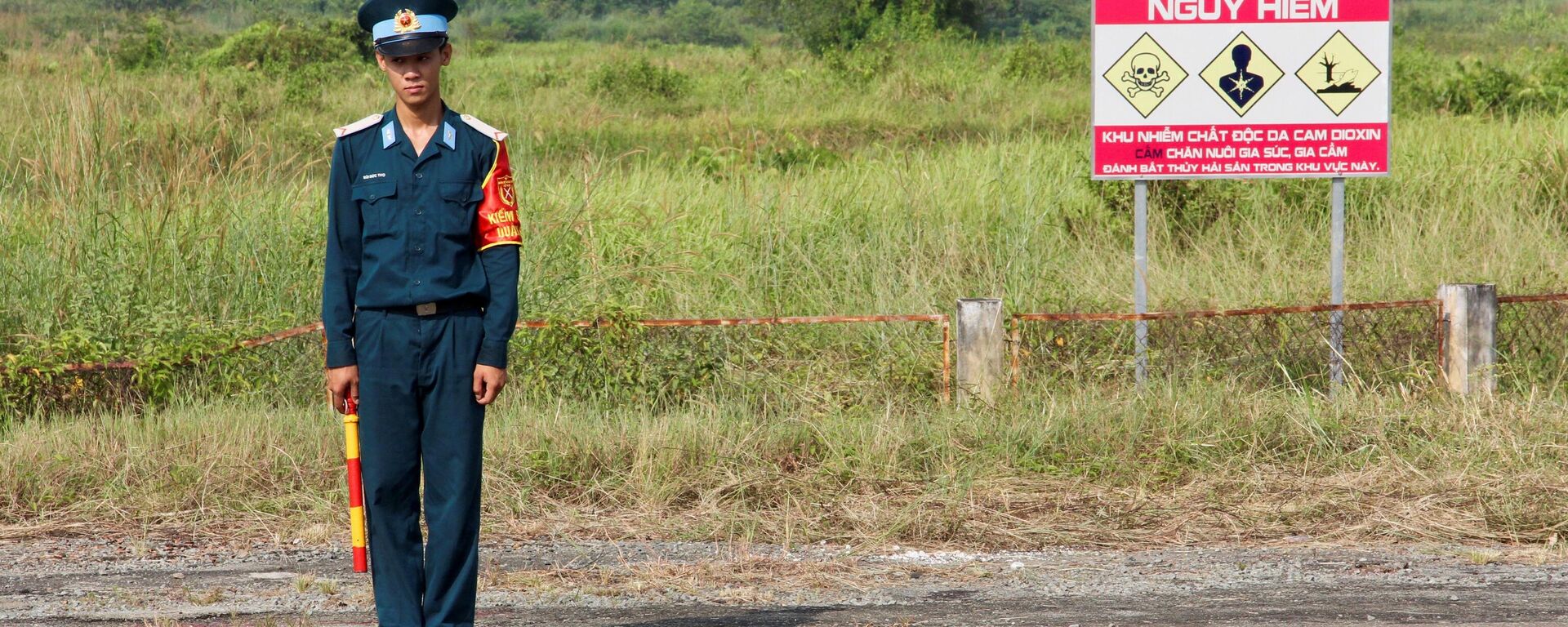
10 August 2022, 12:04 GMT
Morgan said that for him depleted uranium use remains one of his "bigger question marks and concerns," not only from a moral standpoint, but from a personal one.
"When I was in Baghdad we sometimes would do some pitching on roads. I was an All-State [athlete] in track in high school and by the time I was halfway through my deployment it became difficult to run. We literally physically couldn’t. They gave me a couple of inhalers for exercise-induced asthma," Morgan said.
"I've had a buddy of mine from high school pass away a couple years ago from cancer. I’m 39 years old, so I feel like that’s a little early to go. There are people I’ve known that have picked up some cancers that are maybe a little rare and very young to get. I know that since we’ve been there, Iraq has had a large, large issue of birth defects and various things of that nature which are certainly not a coincidence," Morgan said.
Iraqi medical experts say the DU use against Iraq during US and allied bombings in 1991, 1999 and 2003 affected hundreds of thousands of Iraqis, with the country suffering a heightened incidence of cancers, strokes, kidney, lung and liver diseases, miscarriages, premature births and congenital deformities. The Iraqi government estimates that cancer rates have jumped from 40 cases per 100,000 people in 1991 to over 800 per 100,000 in 1995, and 1,600 per 100,000 by 2005.
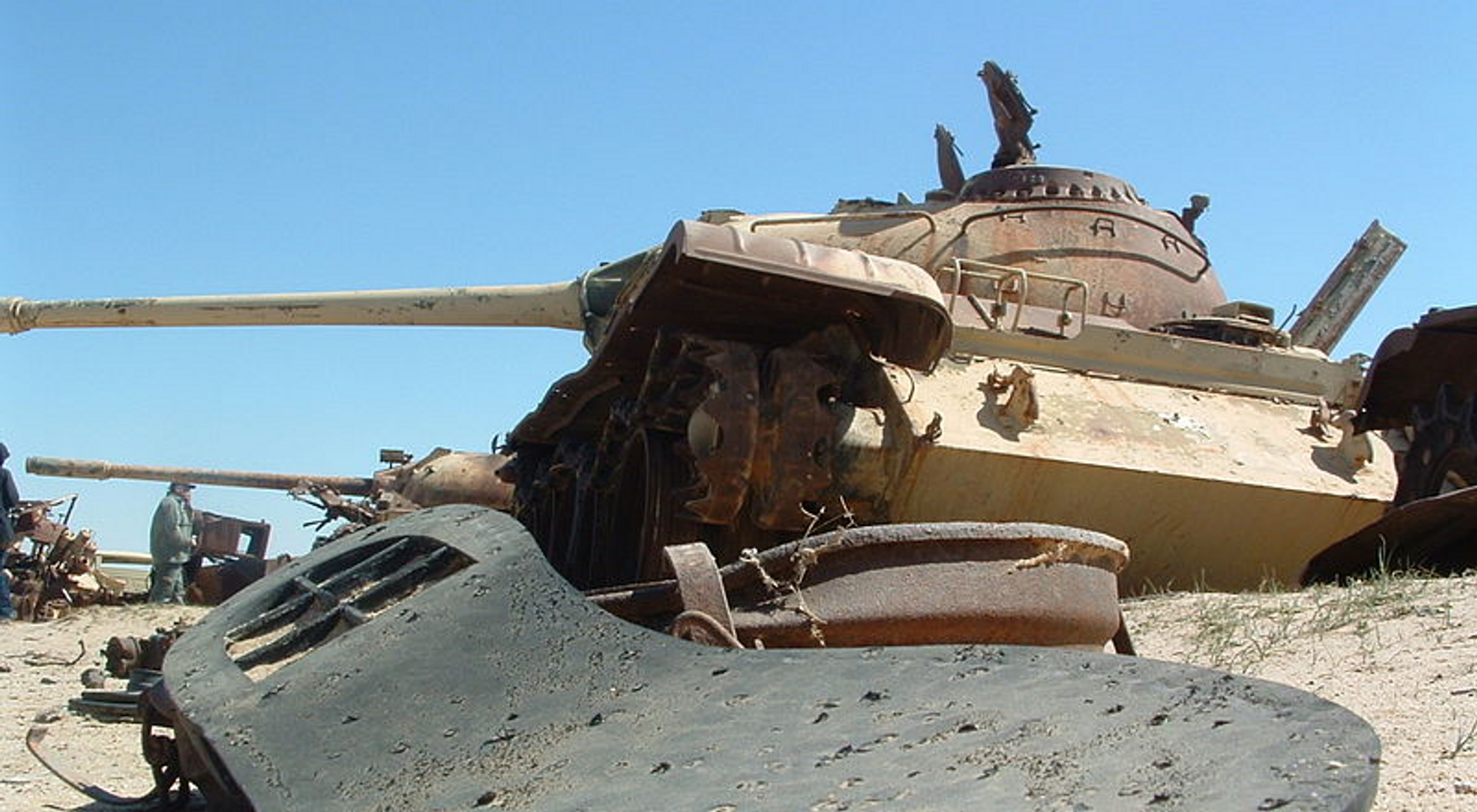
6 January 2021, 16:10 GMT
In the US, vets have spent decades fighting tooth and nail to receive health benefits for exposure to depleted uranium, burn pits and oil well fires, with a recent law known as the PACT Act
extending coverage for veterans suffering from an array of maladies not previously acknowledged by the government to have been the result of exposure to these and other toxic agents during their service.
Pain for Some, Profits For Others
"The war was built on a lie. The weapons of mass destruction was cooked up, and even the CIA knew it wasn't legitimate and they went in anyway," Lewis said of the lead-up and justification for the war. "The media sold it to the public and when the whole thing went off the media lied too. That’s a fact. There were no weapons of mass destruction in Iraq. The justifications for the war kept shifting. It would eventually morph into an 'anti-ISIS’* campaign. I firmly believe the United States and its military industrial complex are the biggest threat to world peace,” the ex-soldier said.
At the same time, Lewis doesn't believe that the US "lost" the war, because in some sense, the Bush administration accomplished the objectives it set off to accomplish.
"I try to avoid thinking of the war as either a win or a loss because there are winners and losers. In a sense, the US won the war because of the countless billions that were made. The military-industrial complex won. This was very profitable for a lot of different companies and in a sense, the US also won militarily because we weren’t pushed off the battlefield in the classic sense. We lost the hearts and minds of the people. We lost the basic mission as it changed, even as it turned to nation building, that was a complete failure. So in that sense the US lost the war," he said.
Morgan agreed. Even after President George W. Bush famously landed on an aircraft carrier for a photo-op and declared "Mission Accomplished", the US military ended up fighting in Iraq "for over a decade after that," he recalled.
"Certain people and individuals or companies gained an immense amount of wealth and power from this war. Millions of people, native Iraqis that were involved in this war in various capacities lost a lot, including their lives, their dignity,” Morgan said. “We didn’t win anything and no one is better off being involved with it. I’ve been heavily involved in the anti-war movement over the years. Some of the guys I’ve worked with are still very pro-war because we all sacrificed so much. It’s hard for some to feel like they made that sacrifice for nothing."
At the same time, notwithstanding these mega profits for the MIC, Morgan says the VA system still isn't equipped to handle the hundreds of thousands of patients created by the war in Iraq.
"There’s still people waiting months. I just talked to a guy yesterday who said he’s on a wait list for July to receive primary mental health help. This is 20 years later and this has been an issue from the beginning. Some veterans feel like they don’t have anywhere else to go or anything else to do but wait," the ex-soldier said.
* ISIS, aka Daesh, is a terrorist group outlawed in Russia and many other countries.
